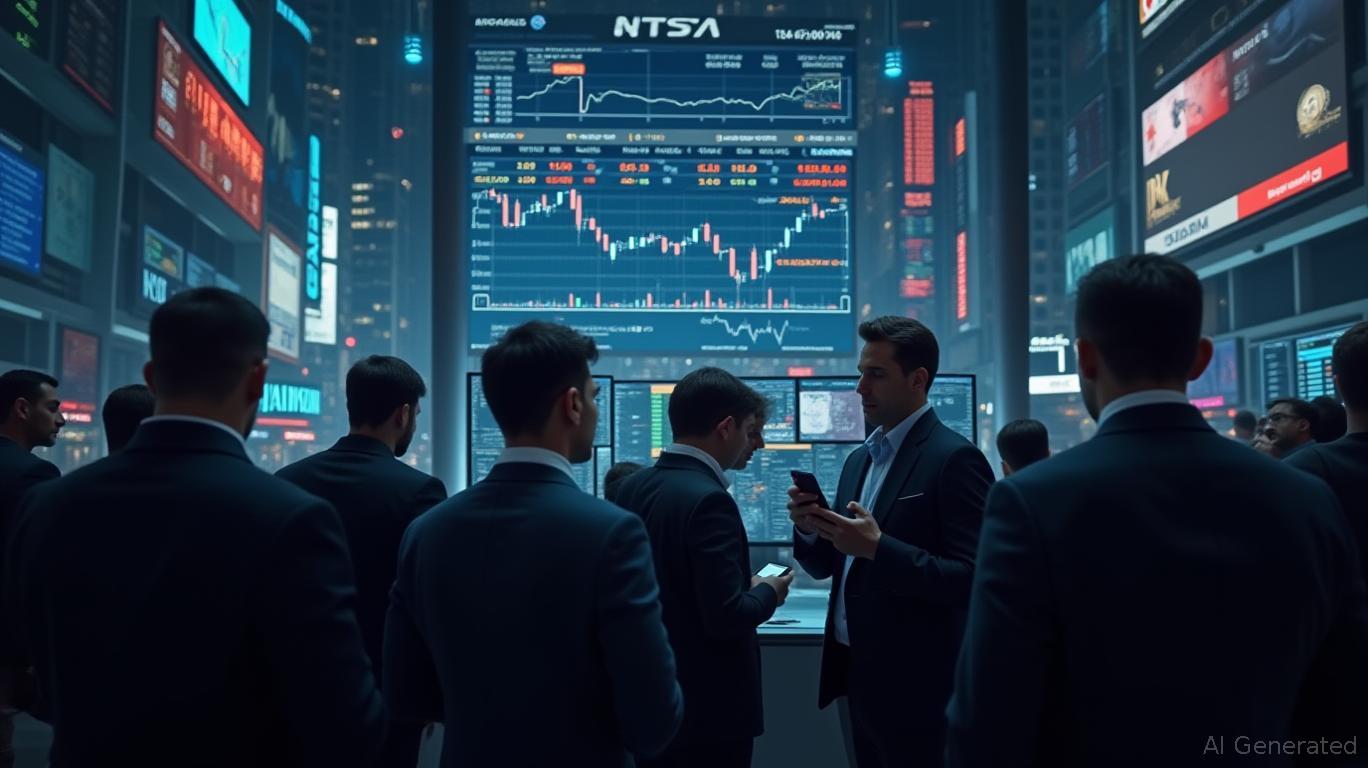Bitcoin News Today: "Are Corporate Bitcoin Purchases Bringing Stability or Increasing Market Volatility?"
- Corporate Bitcoin treasury buys by firms like ABTC and MicroStrategy amplify market volatility amid macroeconomic risks and geopolitical shocks. - Trump's tariff threats triggered a $19.13B liquidation event, exposing crypto's vulnerability to policy shifts and leveraged trading risks. - While institutional accumulation signals long-term Bitcoin confidence, ETF stagnation and XRP's weak performance highlight structural market fragility. - Analysts warn concentrated treasury holdings distort price dynamic
Recent volatility in the cryptocurrency sector has reignited discussions about how corporate treasuries may be intensifying price fluctuations. As companies such as the Trump-supported

ABTC’s latest acquisition of 1,414 BTC for $163 million, raising its total to 3,865 BTC (worth $446 million), has attracted significant attention. The same CryptoRank report highlighted that the company, which integrates mining with treasury operations, saw its share price jump over 11% after the purchase, indicating renewed enthusiasm for crypto-related stocks. Meanwhile, MicroStrategy—now operating as Strategy—added 390 BTC ($43.4 million) this week, bringing its total to 640,808 BTC, valued at about $71 billion. These actions reflect a growing pattern of corporations adopting Bitcoin as a reserve asset, even though prices remain below their historical peaks.
Yet, institutional buying has not shielded the market from sharp price movements. The crypto industry was shaken in early October when Donald Trump announced plans for 100% tariffs on Chinese goods, sparking a record $19.13 billion in liquidations—the largest ever, as reported by a
Analysts note that corporate treasury activity is sending mixed messages. While the purchases by
The conversation around corporate impact is growing as more companies enter the crypto arena. Western Union’s upcoming Solana-based stablecoin, USDPT, and Canary Funds’ planned XRP ETF—possibly launching on Nov. 13—demonstrate increasing institutional engagement with crypto infrastructure. Still, some caution that large treasury holdings could skew market behavior. “Long-term holders are selling their coins at a faster pace,” observed on-chain analyst James Check, a trend reported by
Looking forward, the direction of the market will depend on how corporate optimism balances against broader economic risks. Federal Reserve decisions, ETF trends, and Trump’s trade policies will all play crucial roles. Bitfinex analysts believe Bitcoin could hit $140,000 by November if ETF inflows recover and the Fed loosens monetary policy, as mentioned in the Cointelegraph report. On the other hand, some warn of a possible 70% correction in the next cycle, with critics like Sigma Capital’s Vineet Budki arguing that retail investors’ lack of knowledge leads to panic selling, as summarized in a
As the crypto industry faces this turning point, the influence of treasury-focused companies remains a topic of debate. While their investments reflect ongoing trust in digital assets, the question persists: Are they helping to stabilize the market, or are they increasing its vulnerability to sudden shocks?
Disclaimer: The content of this article solely reflects the author's opinion and does not represent the platform in any capacity. This article is not intended to serve as a reference for making investment decisions.
You may also like
Bitcoin Updates: Institutions Wager on Bitcoin Pullback While Market Awaits Broader Economic Triggers
- Matrixport highlights Bitcoin's near-oversold levels as potential "buying the dip" opportunities amid declining on-chain activity and shifting market structure. - Institutional confidence grows as entities like The Smarter Web Company and Hyperscale Data accumulate BTC during price dips, signaling long-term strategic positioning. - Analysts warn sustained recovery depends on macro catalysts like regulation or economic shifts, despite technical indicators showing early stabilization and $100k support. - M

Court to Decide Whether IEEPA Tariffs Exceed Congressional Powers
- U.S. Supreme Court will decide if Trump's IEEPA tariffs violate Congress's exclusive tariff authority under the Constitution. - $90B in collected tariffs could be challenged, with businesses like Learning Resources Inc. facing catastrophic penalties from strict deadlines. - Legal experts argue IEEPA wasn't intended for tariffs, while Trump administration defends them as national security measures against China. - A ruling against Trump could limit presidential emergency powers and reinforce congressional

Bitcoin Updates: Federal Reserve's Quiet QE and Institutional Moves Drive Bitcoin Toward $140K Even Amid Pullbacks
- Bitcoin dips below $100,000 as experts like Arthur Hayes and Bitwise CIO remain bullish, citing structural market shifts and Fed-driven "stealth QE" liquidity injections. - Institutional demand dominates a maturing market, with miners scaling operations and corporate treasuries adopting Bitcoin amid declining retail participation. - Analysts predict a potential $140,000 rally by year-end, driven by Fed balance-sheet expansion, improved on-chain metrics, and ETF demand recovery despite geopolitical risks.

